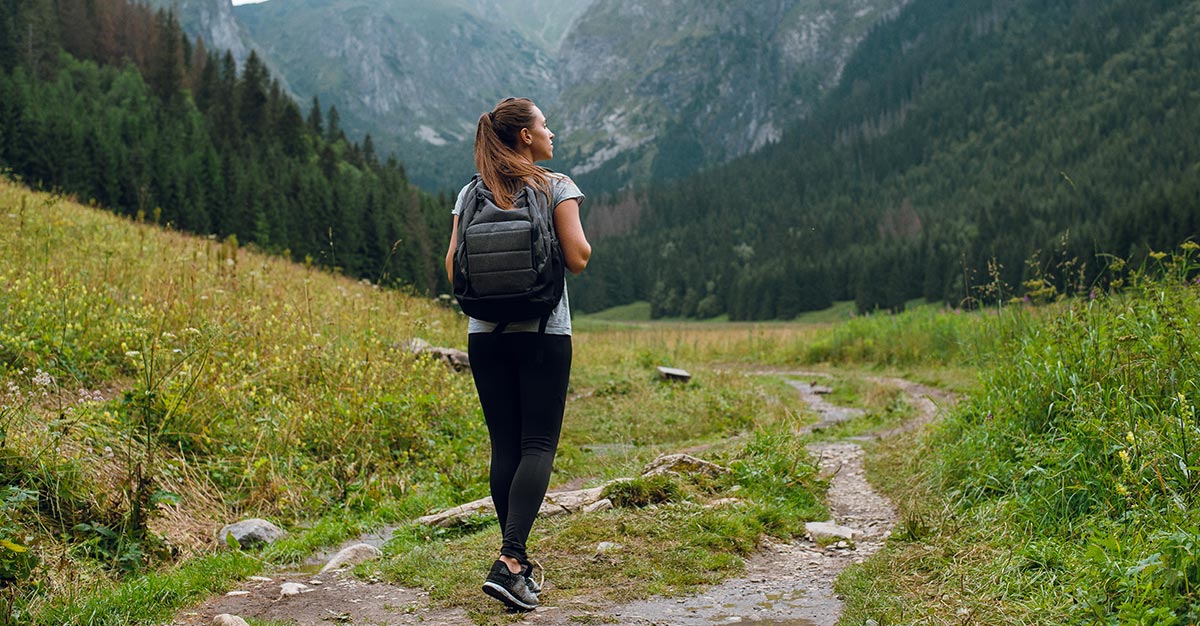Why Doctors Need Nature as Much as Medicine
In medicine, we spend our days surrounded by artificial light, the constant beeping of monitors, and the pressure of urgent decisions. It’s a world of fluorescent hallways and windowless call rooms. Even when we’re helping others heal, we often forget to care for ourselves.
For years, I thought rest meant catching up on sleep between shifts. But I eventually learned that there’s another kind of rest—one that doesn’t come from a bed, but from stepping outside into the natural world.
Nature has a profound effect on our brains, and modern neuroscience is starting to explain why. As physicians, understanding that connection can help us protect our mental health, sharpen our focus, and even improve the way we care for patients.
The Brain on Nature
When we spend time outdoors—walking in the woods, sitting by the ocean, or even just taking a stroll in a park—our brains respond in measurable ways. Studies show that time in natural environments reduces activity in the parts of the brain linked to rumination and stress.
For physicians, that’s huge. We carry patient stories with us—sometimes the hard ones linger for days. Nature gives our minds a safe place to “file away” those thoughts, reducing mental clutter. It’s not just a feeling—it’s a physiological reset.
Exposure to green spaces also increases levels of dopamine and serotonin, the brain chemicals associated with mood and motivation. That means we come back not only calmer, but also more energized to tackle the next challenge.
Focus: The Other Benefit of the Outdoors
We all know the feeling of mental fatigue after a long day in the hospital. It’s not just physical exhaustion—it’s cognitive overload. In the ICU, for example, the brain is bombarded with data: lab values, imaging results, alarms, consults. It’s easy for our attention to scatter.
Nature works like a reset button for attention. Neuroscientists call it “attention restoration theory.” In natural settings, our brains enter a relaxed, yet alert state. Instead of forcing concentration (as we do in the hospital), our focus gently recharges. That’s why a 20-minute walk in a park can make it easier to finish charting or make a clear-headed decision in a complex case.
The Link Between Physician Wellness and Patient Care
Physician wellness isn’t just about preventing burnout—it’s directly tied to patient care. A doctor who is mentally present, emotionally steady, and cognitively sharp will deliver better care.
When we’re mentally fatigued, we’re more prone to mistakes, less able to listen deeply, and more likely to miss subtle clues in a patient’s story. On the other hand, when we take time outdoors, our stress levels drop, our mood improves, and our capacity for empathy increases.
This isn’t just a personal benefit—it’s a professional responsibility. Time in nature is a form of self-maintenance that keeps us fit for the demands of our work.
Making Outdoor Time a Real Habit
I know the biggest barrier: time. Most doctors barely have time to eat lunch, let alone go for a hike. But outdoor time doesn’t have to mean an entire weekend away. It can be integrated into a busy schedule:
- Morning coffee outside. Even 10 minutes on a porch or balcony can help set a calmer tone for the day.
- Walking meetings. If you’re discussing a patient case or mentoring a trainee, take it outside and walk.
- Green commutes. If possible, walk or bike to work, even part of the way.
- Nature micro-breaks. Step outside between cases or after rounds, even if it’s just to stand in the sun for a minute.
These small moments add up. I’ve found that even brief exposure to natural light and fresh air can shift my mindset for the rest of the day.
Nature as a Teacher
As a physician, I’m always looking for lessons—and nature has plenty to offer. A quiet forest can teach patience. A turbulent ocean can teach respect for forces bigger than ourselves. The slow growth of a tree can remind us that healing, like nature, takes time.
In many ways, being in nature is like practicing medicine. You observe, you listen, you stay humble in the face of complexity. Both require curiosity and respect for the systems at work—whether it’s the human body or the natural world.
My Own Prescription
When I mentor residents, I talk about clinical judgment, patient communication, and resilience. Lately, I’ve started adding another piece of advice: spend time outside. It’s not just good for you—it’s essential to sustaining a long, healthy career in medicine.
I’ve seen the difference in my own life. After long stretches without outdoor time, I’m more irritable, less focused, and more easily overwhelmed. But after a hike, a walk by the river, or even sitting in my backyard for half an hour, I return to my work clearer, steadier, and better able to connect with my patients.
Closing Thoughts: A New Kind of Rounds
Maybe one day, we’ll see “nature rounds” as part of physician training—a time where doctors step outside together to talk, reflect, and recharge. Until then, we each have to take responsibility for our own mental reset.
In medicine, we’re trained to push through exhaustion, to prioritize patients above all else. But the truth is, we can’t pour from an empty cup. Stepping into nature isn’t indulgence—it’s maintenance. It’s as necessary for the physician as stethoscopes, chart notes, and continuing education.
The science is clear: nature changes the brain. For doctors, it can mean the difference between surviving this profession and thriving in it. So my advice? Step outside. Let the trees, the sky, and the open air do their quiet work. Your mind—and your patients—will thank you.
